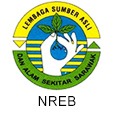Indigenous Voices in the Palm Oil Debate
In the debates on the sustainability of palm oil, which has pitched environmental groups against governmental plans for development, the exclusion of indigenous Dayak oil palm farmers is a problem that challenges the definition of “sustainable palm oil.”
Dayak Indigenous peoples are popularly touted by environmental groups as “protectors of the forests” who need support to preserve their forests and livelihoods against palm oil cultivation. This point is so woke and popular that even the United Nations Environmental Program supports taking governments and developers to court with the ultimate goal of protecting fast-disappearing forests.
The UNEP report is therefore seen as guilty of exploiting indigenous peoples to drive its agenda for decoupling deforestation from commodities, nature-based solutions and conservation.
Deforestation for palm oil, cannot be associated with indigenous peoples who have benefitted from cultivating the crop as a means towards improving the socio-economic development of their peoples.
Relying on the handouts of global conservation efforts, even for financing rounds lasting five years, is not a sustainable practice when sustainable commodities should be defined as the ability to provide for generations, without undue harm to nature.
Sarawak Dayak Oil Palm Planters Association (DOPPA) respects the decision of its indigenous brethren in Latin America to work with UNEP to restore forests despite the lack of financial commitment from the global arena. Parties interested in fighting for indigenous rights and the environment should not issue statements that can paralyse the Government's efforts in improving the economic level of the indigenous peoples through oil palm cultivation without extending any humanitarian and financial assistance in the long term.
DOPPA believes in the ability to control one’s own destiny through traditional practices where human needs and nature co-exist. These factors are evident in DOPPA member farms where no-deforestation has occurred, and nature-based solutions and conservation are practiced. A five-hectare oil palm farm in Sarawak has been shown to be capable of providing the food and financial needs of a family that extends to future generations.
Yet, the harvests of Dayak oil palm farmers, have been associated with deforestation, their access to better markets threatened by restrictive trade measures including the European Union’s Deforestation Regulations (EUDR). The attitude of the EU to introduce the Deforestation law is very regrettable because it has failed to take into account the Dayak Community's interest in eradicating the level of poverty and is seen as an attitude of colonisation that is capable of harming the Dayak Community's poverty level.
As the global markets work towards sustainable commodities, DOPPA, on the behalf of indigenous oil palm farmers, will invite relevant stakeholders to present their solutions for indigenous peoples in a webinar scheduled for early 2024.
Napolean R Ningkos
President
Sarawak Dayak Oil Palm Planters Association (DOPPA)









